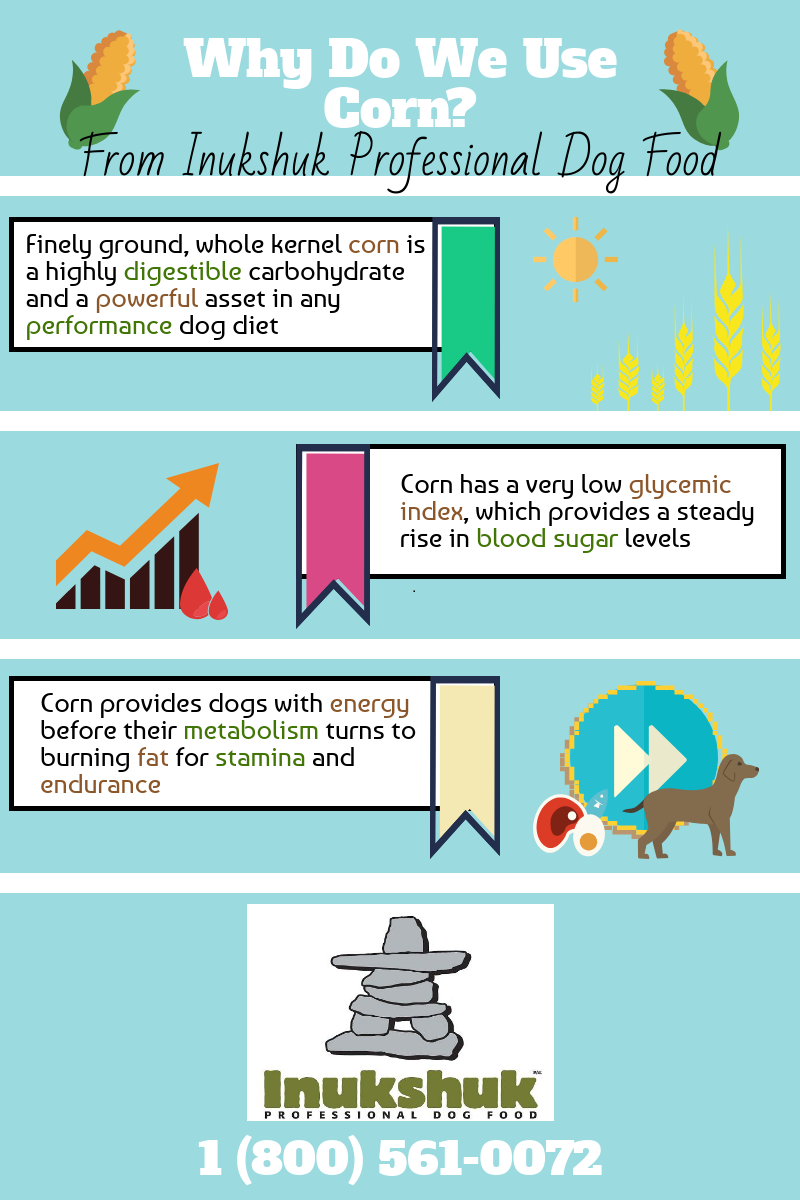Corn has had a long and controversial history in the world of dog food. While some of those concerns are credible, others come from some level of misunderstanding. Here’s a quick look at what’s real and what’s not:
What does corn actually do?
Whole Grain Corn, when finely ground, (as used in Inukshuk Professional Dog Food) is a source of highly digestible carbohydrate. In this form, it also contains more fibre, more protein and less starch than many other corn derived products.
The benefits of corn and why we use it.
When is corn bad?
Corn’s poor reputation derives from too many large-scale manufacturers using corn as a primary protein source. The reason for doing this is because corn is much cheaper than meat - as such, manufacturers were able inflate the percentage of protein in their dog food.
Dogs may be omnivores, but for optimum nutrition, the majority of ingested protein must come from an animal source. When feeding plant-based protein, you risk creating a deficiency in many of the essential amino acids (proteins), vitamins and other nutrients that dogs require.
This is exactly what happened to the dogs being fed vegetable protein heavy diets. These concerns are valid and consumers should definitely avoid pet food products that use corn as a primary protein source.
Benefits
When used appropriately, corn’s high digestibility can be a powerful asset in a performance diet. Corn also has a very low glycemic index which provides a steady rise in blood sugar levels. It also provides dogs with energy before their metabolism turns to burning fat for stamina and endurance.
Verdict
The reality is that corn isn’t bad for your dogs as long as it is used in limited quantities and included as a source of carbohydrate, not protein. In such cases, it is a highly nutritious ingredient in dog food.
Read more Inukshuk Nutrition Articles:
Sources:
Emily Corey (PhD. Candidate), VP of Pet Foods at Corey Nutrition Company
Case, L. P. Daristotle, L., Hayek, M. G. and Raash, M. F. 2011. Canine and Feline Nutrition: A Resource for Companion Animal Professionals. Third ed. N.p. Mosby Elesvier, 2011. Print.





